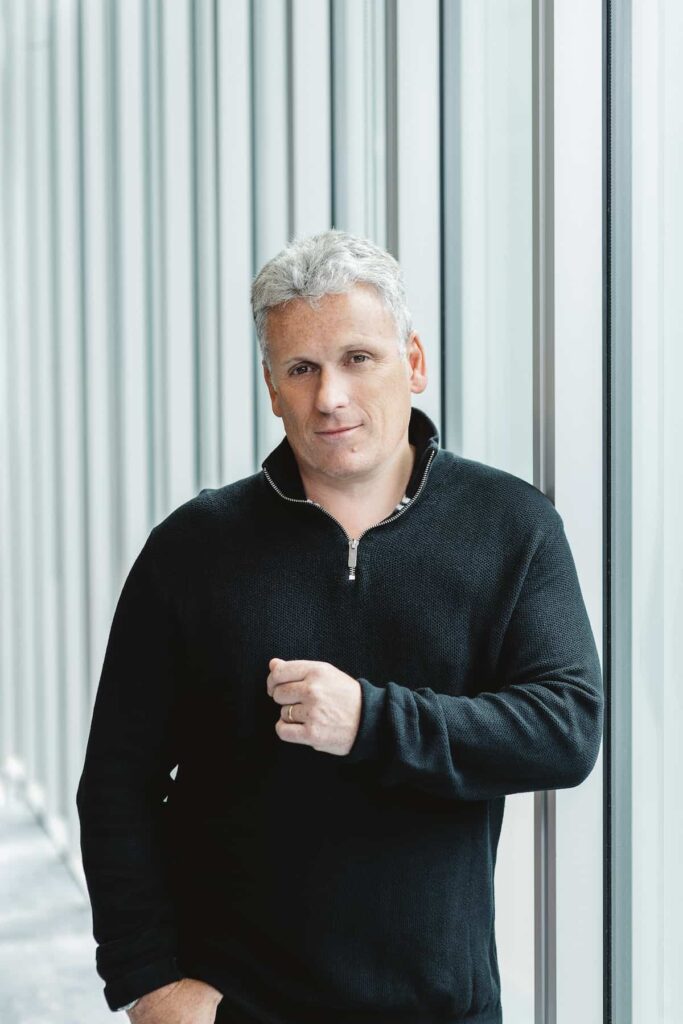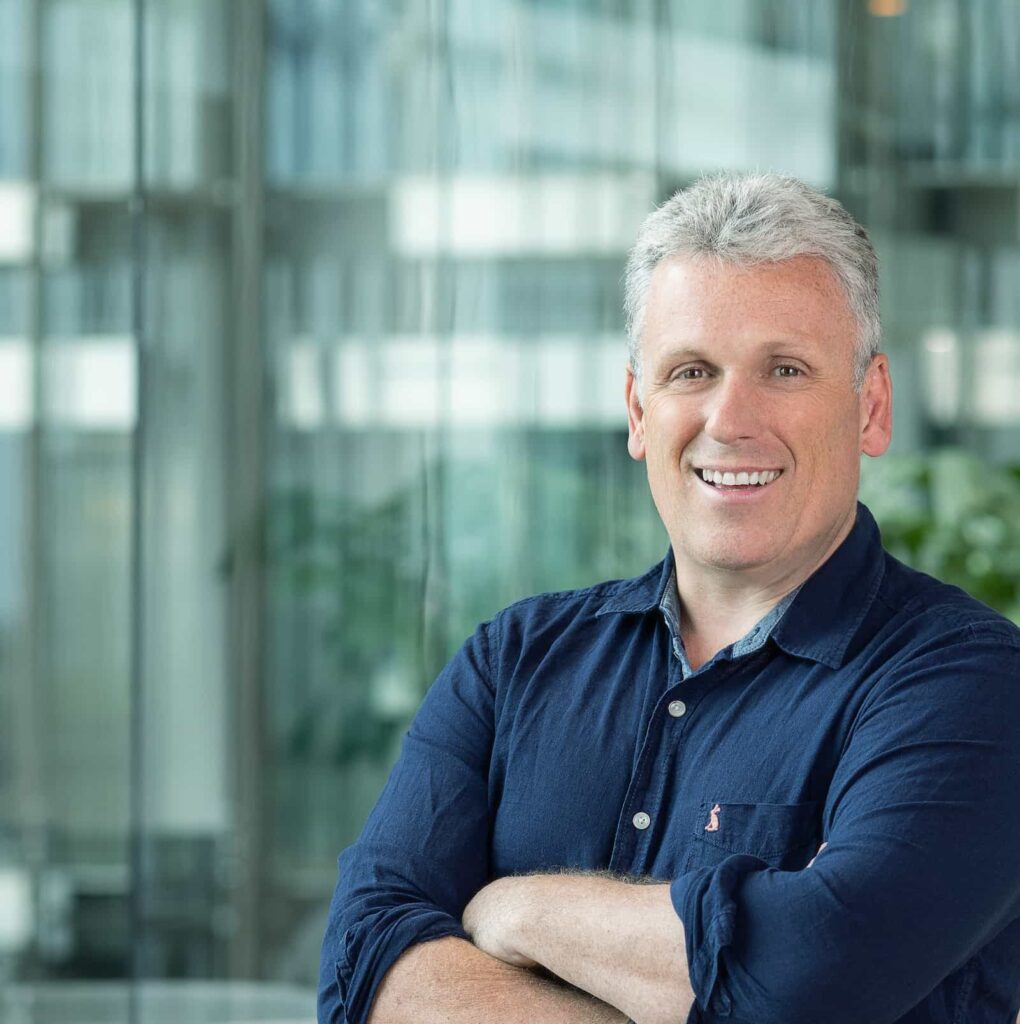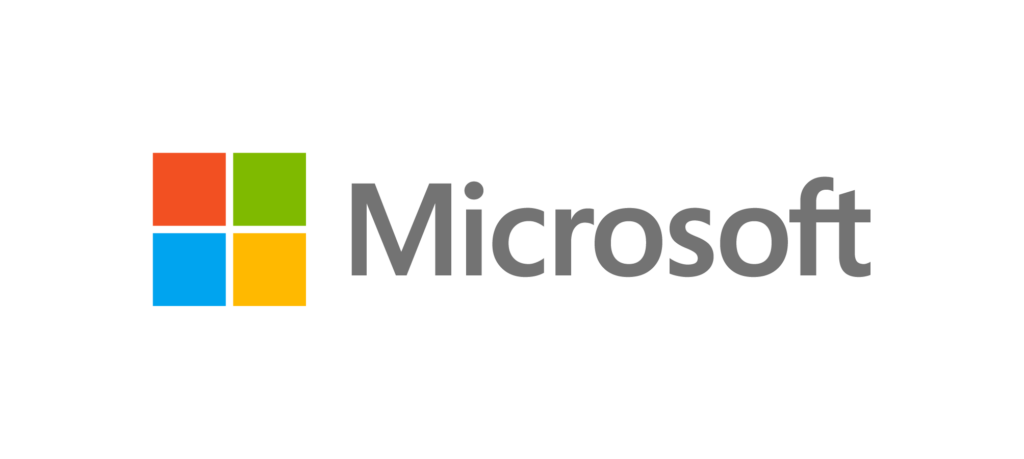Greg Wilson currently serves as the Chief Technology Officer (CTO) for Microsoft’s World Wide Public Sector team, with a primary focus on the government sector. His role places him at the heart of global government digital transformation efforts, providing strategic and technical guidance as governments worldwide aim to leverage technology to improve their public services. Greg’s mission is deeply aligned with Microsoft’s overarching goal: to empower every person and organization to achieve more, especially through the integration of advanced technologies like cloud computing, data analytics, and artificial intelligence (AI). As a CTO, Greg brings to the table a wealth of experience and leadership, helping public sector clients harness the power of Microsoft’s cutting-edge technologies to create meaningful change. His unique blend of technical expertise and strategic thinking enables governments to overcome complex challenges, optimize public service delivery, and enhance citizen engagement. His role is highly fulfilling, as it allows him to travel extensively, engage with diverse cultures, and assist governments in realizing their digital aspirations.

Before joining Microsoft, Greg’s career was rooted in military service. He served as a senior officer in the British Army’s Royal Signals, an organization responsible for communications, cyber operations, and IT systems within the military. During his time in the Army, Greg specialized in cyber and information systems, acquiring advanced degrees in these fields and leading teams on military operations across the globe. His experience commanding technical soldiers and overseeing critical cyber operations gave him the leadership foundation that would later serve him well in his role as CTO. In addition to his military operational roles, Greg held various strategic and capability-focused positions within the Ministry of Defence (MOD), Navy Command, and Army Headquarters. He was also a key figure on the UK Government’s Public Sector Major Programme Review Team, where he reviewed significant government procurement programs on behalf of the UK Cabinet Office. These experiences not only honed Greg’s ability to manage large, complex projects but also cultivated his expertise in driving transformation and procuring new technologies.

“In the AI era, technology is not just an enabler; it’s a key component of the business solution.”
Greg is a Chartered Engineer, Chartered IT Professional, and Chartered Manager. He also holds a prestigious academic background, having completed the Harvard Business School Advanced Management Programme and the military’s Higher Command and Staff Course. His commitment to professional development and strategic leadership is further evidenced by his role as the Chair of the Royal Signals Institute think tank and as a Colonel Commandant of the Royal Signals. Greg’s journey to becoming a CTO was a natural progression from his military background. Leading technical teams in the military equipped him with the skills to drive change, resolve problems, and operate on the cutting edge of technology. His transition to Microsoft allowed him to continue his passion for leading teams, but now with a focus on using technology to solve problems and make a broader impact in the public sector. As CTO, Greg’s role is dynamic and multifaceted. He oversees the technical direction of Microsoft’s World Wide Public Sector team and plays a crucial role in closing complex deals, providing technical support, and offering strategic advice to government clients. His position requires him to be both a technical authority and a business leader, bridging the gap between Microsoft’s engineering teams and its business units. Additionally, Greg is heavily involved in talent development, coaching, and mentoring personnel to ensure they are equipped to meet the challenges of the rapidly evolving tech landscape.

The role of a CTO in today’s fast-paced tech environment is challenging but highly rewarding. For Greg, being a CTO means being a trusted technical leader who helps organizations navigate the complexities of digital transformation. He defines the role as a blend of technical expertise, strategic business thinking, and people management. As a technical leader, the CTO is responsible for understanding and integrating new technologies while ensuring that they align with the organization’s overall goals. In Greg’s case, this means working closely with governments to help them modernize their services, adopt new technologies, and improve efficiency. Whether it’s providing technical thought leadership, solving complex problems, or supporting partner engagements, Greg’s role is crucial in helping governments achieve more with Microsoft’s technology. Beyond the technical aspects, Greg emphasizes the importance of softer skills such as communication, cultural awareness, and empathy. These attributes are essential in understanding the challenges faced by public sector workers and ensuring that technological transitions are smooth and effective.
“Leadership is about fostering trust, breaking down silos, and cultivating a culture that empowers teams to solve complex problems.”

In Greg’s view, the qualities that make a successful CTO go beyond technical knowledge. A CTO must have a growth mindset, be adaptable to change, and possess strong leadership skills. They must also have the ability to translate complex technical concepts into business strategies that drive growth and efficiency. For Greg, being a successful CTO means being a respected leader who can bridge the gap between technical and business teams to deliver meaningful outcomes. Greg also believes that veterans, like himself, bring unique qualities to the tech industry. The skills developed in the military, such as problem-solving under pressure, decision-making in high-stakes environments, and a strong work ethic, are highly transferable to the business world. He encourages businesses to tap into this talent pool to enhance their teams and achieve success.
In the ever-changing world of technology, staying updated with the latest advancements is critical. Greg is a firm believer in continuous learning and actively seeks out new information to stay ahead of the curve. Whether it’s through digital platforms, published papers, blogs, podcasts, or discussion forums, Greg is always seeking new insights into technology trends and their potential impact on the public sector. Additionally, he makes it a point to read at least one book each week on leadership, management, or advanced technology topics. Greg’s growth mindset extends beyond simply staying informed; it involves thinking critically about how new technologies can be applied to solve real-world problems. For Greg, that’s the true essence of being a CTO – not just keeping up with technology but driving its application in ways that create value and impact.

Artificial intelligence (AI) is at the forefront of technological innovation, and Greg believes it will play a transformative role in shaping the future of public services. He likens the impact of AI to that of electricity when it was first introduced, emphasizing its potential to revolutionize industries and improve productivity. AI technologies such as machine learning, deep learning, and natural language processing are already being integrated into government operations, driving economic growth and innovation. Greg is particularly excited about the democratization of AI, with tools like Microsoft’s Copilot making AI more accessible to everyday users. He believes that the integration of AI, along with cloud computing, data analytics, and advanced cybersecurity, will significantly enhance public sector services, leading to better outcomes for citizens and more efficient government operations. Greg Wilson’s role as CTO of Microsoft’s World Wide Public Sector team places him at the center of government digital transformation efforts. With his unique background in military leadership and his passion for technology, Greg is driving innovation and helping governments worldwide harness the power of AI and cloud computing to improve public services and deliver better outcomes for citizens.

“The biggest challenge for technology leaders isn’t technical, it’s managing change and aligning tech initiatives with business strategy.”
Greg Wilson emphasizes that there is no one-size-fits-all approach to developing AI readiness within organizations and governments. Each organization has its unique business models, histories, and challenges. He notes that companies in highly regulated sectors and government agencies often have established governance systems, while larger organizations with experience in machine learning or neural networks are more familiar with agile development practices. However, the novelty of generative AI means that most organizations are still exploring use cases and potential impacts. Greg highlights the growing importance of data and technology infrastructure, as well as the transition from on-premises systems to cloud-based services. Governments and organizations are migrating to the hyperscale cloud to harness the benefits of AI, focusing on AI services, Models as a Service (MaaS), and their impact on business outcomes. For early adopters of AI, Greg stresses the need for transparency, explainability of AI tools, and the security of third-party applications. In more advanced AI environments, there is a greater emphasis on performance metrics and use cases to help shape AI outcomes effectively.
Greg sees the role of CTOs as crucial in aligning technology with business needs, establishing frameworks for AI governance, and ensuring that organizations follow responsible AI practices. Greg believes that the biggest challenge for technology leaders today is not technical, but about managing change. Tech leaders must align technological initiatives with business strategy while staying updated on emerging technologies. This requires a growth mindset focused on continuous learning and development to remain competitive. Another significant challenge is fostering innovation and encouraging research and development. Greg emphasizes the importance of breaking down organizational silos to enable cross-functional collaboration, leading to cost-effective solutions. In addition, managing and retaining skilled talent is a key concern, requiring a positive work environment, competitive salaries, and a strong company culture.
Greg also underscores the importance of leadership in overcoming technical challenges such as data management, cybersecurity, AI integration, and skill development. For him, leadership is about cultivating top talent and committing to ongoing improvement centered on delivering clear customer outcomes. Looking to the future, Greg believes that CTOs will become the driving force behind organizational innovation. They will lead the integration of new technologies like AI, cloud computing, and data to improve business models and capture market opportunities. CTOs will also play a key role in fostering social value by addressing the digital divide and developing sustainable technologies. Greg sees the CTO as a strategic position, especially in the AI era, and urges businesses and governments without a CTO or AI champion to rethink their leadership structure. He views technology not just as an enabler but as a fundamental part of business solutions.
Greg advises aspiring technologists to stay curious, keep learning, and maintain a growth mindset. While technical skills are important, he stresses the need to stay customer-focused and be able to communicate how technology impacts business outcomes. Building a strong network, finding mentors, and understanding strategic approaches to maximize personal value are also essential. Leadership skills are critical, even for those not directly managing people. Greg highlights the importance of building tailored teams to solve complex problems, requiring trust, credibility, and strong leadership. Drawing on his own experiences, including lessons learned from his time in the British Army, he emphasizes the value of respect, fair treatment, and having the courage to speak truth to power. Ultimately, Greg believes that having a clear purpose, working in an empowering culture, and acting with integrity are the keys to success in leadership. He encourages technologists to champion a culture that fosters team empowerment and continuous learning.

“There is no one-size-fits-all approach to AI readiness; each organization has its own unique business models, histories, and challenges.”


